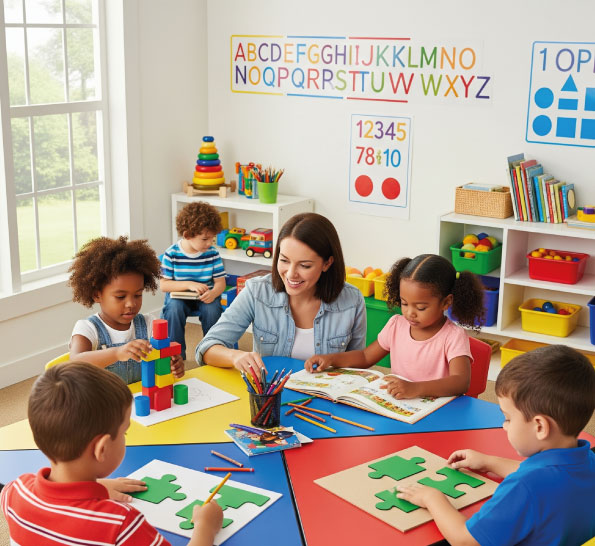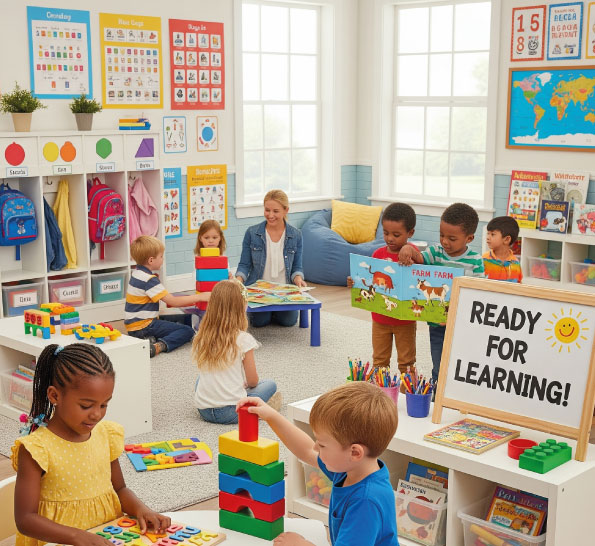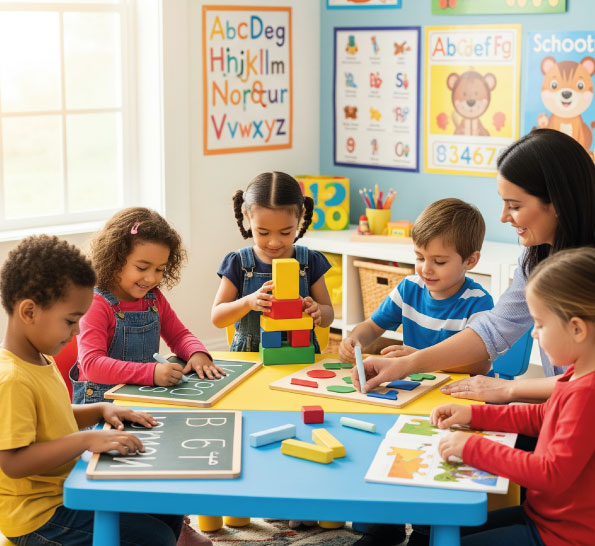Table of contents
School Readiness: Preparing your child for kindergarten is one of the most important things you can do as a parent, setting the stage for lifelong learning and success. It’s a journey that begins not in the classroom, but at home, through everyday interactions and simple, joyful activities. This comprehensive e-book, “Helping Your Child Get Ready for School,” is your indispensable guide to building the essential skills and qualities that contribute to school readiness.
The Essential Guide to School Readiness: Nurturing Your Child’s Success
Authored by U.S. Department of Education writer and editor Nancy Paulu , this book is designed to help parents, grandparents, and caregivers nurture their child’s natural curiosity and imagination. The book’s core philosophy is that learning is not a mystery confined to school buildings but a fun and important part of daily life that happens when parents and children do simple things together.

This guide offers a clear framework for understanding what
school readiness truly means, moving beyond a single quality or skill to encompass a combination of key factors for success. The book identifies several crucial areas, including good health and physical well-being, social and emotional maturity, and language and general knowledge. The author emphasizes that a child’s path to success starts early, with the first five years being a critical time for laying the groundwork for future development.
Parents are highlighted as the most important teachers, whose example and conversation shape their children’s learning journey. This approach ensures that you’re not just preparing your child for a test, but for life itself, building a solid foundation for their academic and personal growth.

Promoting Social and Emotional Development: A Cornerstone of School Readiness
One of the most significant aspects of school readiness is a child’s social and emotional development. The book provides insight into the qualities that children need to thrive in a kindergarten environment, which is often different from what they are used to at home. It’s about more than just getting along with others; it’s about building confidence, independence, motivation, curiosity, persistence, and self-control.
The author’s perspective is that parents, even more than child care centers, are vital in helping children develop these skills. The book recommends specific, actionable steps, such as showing love and attention, setting a good example, having a positive attitude toward learning, using appropriate discipline, and encouraging children to be independent. These practices help children feel secure and confident, which in turn makes them more willing to attempt new tasks and persist through challenges.

The Power of Language and Play: Building Foundational Skills
The guide also dedicates a significant portion to fostering language and general knowledge, which are critical for school readiness. It stresses the importance of play as a natural way for children to learn and develop academic and social skills, helping them explore and solve problems creatively. The book’s recommendations are simple yet profound: talk to your children from birth, listen to them, ask and answer questions, and read aloud every day.
The author emphasizes that a TV or radio cannot replace a parent’s voice, which responds to a baby’s coos and babbles and broadens their understanding of the world. The book provides a rich collection of simple, fun activities for different age groups, from birth to age 5, that can be incorporated into daily routines to make learning enjoyable and effective. This hands-on, activity-based approach is at the heart of the e-book’s philosophy, demonstrating that school readiness is a collaborative and enjoyable process for both parent and child.
The Author’s Recommendations: Simple Activities, Big Results (school readiness)
The author’s primary recommendation is to engage in the simple, fun activities provided throughout the book. The guide is structured by age, with each section detailing what to expect from children at that stage and what they need to help them grow. For instance, a simple shopping trip can become a lesson in vocabulary and sensory exploration. Creating sock puppets can encourage communication and fine motor skills. The author advises that these activities are adaptable and that a child may be ready for them at different ages, as children learn at their own pace.
Kids Occupied: 32 Ways for Keeping Kids Occupied Without Screens
The overall message is that parents don’t need to be professional teachers to provide a stimulating learning environment; they just need to be present and engaged, making learning a shared experience that is both fun and important. The book concludes with a ready-for-school checklist, giving parents a clear way to assess their child’s progress and feel confident that they have set their child on a path to success. This e-book is the ultimate toolkit for building a strong foundation for future academic achievement and a positive relationship with learning.